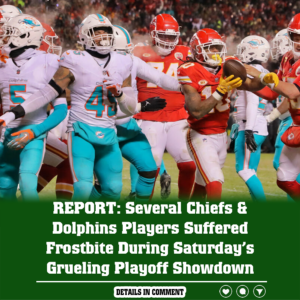The context of the legal challenge centers around the SEC vs. Jarkesy case, in which George Jarkesy contends that his Seventh Amendment rights were violated.

Collect article
Own this piece of history as an NFT
Join us on social networks
Elon Musk, Mark Cuban and others have collaboratively submitted a shared amicus brief to the Supreme Court of the United States to raise concerns about the U.S. Securities and Exchange Commission’s (SEC) approach to conducting internal proceedings without the inclusion of juries.
Mark Cuban, a billionaire crypto investor and supporter of decentralized finance (DeFi) who works in the cryptocurrency space, and Elon Musk, the CEO of Tesla and SpaceX who recently changed Twitter’s name to X and is controversial in the crypto space, both say that these administrative proceedings have different outcomes for people who are facing SEC charges. Consequently, this approach has raised concerns about the potential infringement of the U.S. Constitution’s Seventh Amendment right to a jury trial.
The context of this legal challenge centers around the SEC vs. Jarkesy case. George Jarkesy contends that his Seventh Amendment rights were violated in this specific case. He argues that the SEC’s internal adjudication process, which lacks a jury and is overseen by an administrative law judge appointed by the commission, contradicts these rights. This effectively results in a single entity fulfilling the roles of judge, jury and enforcer.
Screenshot of the amicus brief. Source: ICAN Law
Musk, Cuban and other amici curiae highlight a shift in the SEC’s approach between 2013 and 2014. They observed that the SEC started handling more cases internally rather than through federal courts. This change occurred after a string of unsuccessful insider trading cases were tried before juries.

Musk is facing his third notable legal dispute with the financial regulatory agency. This comes in the wake of prior lawsuits in 2018 and 2019. There is currently an effort by the regulatory body to get a federal court to ask Musk to testify about his purchase of Twitter, specifically about what he said in public about the deal, as shown in legal records.
Still, the amici curiae have not changed their minds. They say that choosing administrative proceedings over federal court juries goes against the SEC’s stated mission. Furthermore, such decisions could potentially negatively impact investors and the markets the SEC is committed to protecting.
News
Dave Crosby, the individual who captured the attention of all three Voice Judges in record time. Watch his incredible performance – it’s truly astonishing!
From the moment he graced the stage, it was evident that a remarkable performance was about to unfold. As Dave serenaded the room, a captivating melody filled…
Tom Brady Sparks New Dating Rumors After Being Spotted Out At Dinner With Popular Sideline Reporter
Tom Brady has set off another wave of dating speculation following his brief romance with Irina Shayk. According to TMZ, the former NFL star was spotted out in Beverly…
REPORT: Several Chiefs & Dolphins Players Suffered Frostbite During Saturday’s Grueling Playoff Showdown
Multiple players are said to have suffered frostbite during Saturday night’s playoff showdown between the Kansas City Chiefs and Miami Dolphins at Arrowhead Stadium. The game was the fourth-coldest in NFL…
Female Eagles Fan Unleashed All Sorts Of Cruel, NSFW Insults Towards Bucs Fans After Her Team’s Ugly Wild Card Loss In Tampa (VIDEO)
A female Eagles fan went off on Buccaneers supporters after having to sit through a frustrating Wild Card fixture in which her team put just nine points…
Female Eagles Fan Unleashed All Sorts Of Cruel, NSFW Insults Towards Bucs Fans After Her Team’s Ugly Wild Card Loss In Tampa (VIDEO)
A female Eagles fan went off on Buccaneers supporters after having to sit through a frustrating Wild Card fixture in which her team put just nine points…
Jalen Hurts Had An Interesting 7-Word Response After Being Asked If He Wants Nick Sirianni To Remain The Eagles’ Head Coach (VIDEO)
Jalen Hurts has taken an exit at the first opportunity as his Eagles are out of the playoffs following a season in which they raced to 10-1 before…
End of content
No more pages to load











